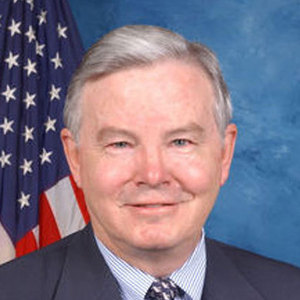Profiling Team Romney: US Rep. Joe Barton, R-Texas




October 25, 2012
BY Ron Kotrba
Republican presidential candidate Mitt Romney’s short list of possible energy secretaries includes Tea Party-backed U.S. Rep. Joe Barton, R-Texas, the House energy committee chairman who gained infamy for his apology to BP’s CEO Tony Hayward during congressional hearings in 2010, as the Deepwater Horizon catastrophe unfolded.
“I’m ashamed of what happened in the White House yesterday,” Barton said to Hayward for the whole world to hear, referring to “the slush fund” (his words) established between the Obama administration and BP in which the oil giant would provide $20 billion over four years to help remedy damages from BP’s Gulf oil spill.
“I think it is a tragedy of the first proportion that a private corporation can be subjected to what I would characterize as a $20 billion shakedown,” Barton said. “Speaking for myself, I apologize. I do not want to live in a country where anytime a citizen or corporation does something wrong, they are subject to political pressure that amounts to a shakedown, so I apologize.”
Afterwards, Democrats demanded Republicans strip Barton of his ranking member status. The Grand Old Party rotates chairmanships every three terms, however, and since Barton took leadership of the energy committee in 2004, he was already out of the running for a fourth term as chairman, despite his new label as the notorious apologist.
When it comes to energy, Barton self-admittedly has made a public service career out of deregulating the oil and gas industry and opposing U.S. EPA environmental regulations.
In April, after EPA issued a 588-page final rule for the oil and gas sector on new source performance standards and emission standards for hazardous air pollutants, Barton characterized the measure as EPA playing politics with domestic energy.
Advertisement
“New technologies are unlocking vast reserves of oil and natural gas that can power our nation for generations in an environmentally friendly way,” Barton said in a press release. “Instead of doing proper research and relying on sound science, the EPA is playing politics with our nation's energy supply and economy. This rule is another example of EPA expanding its role in national energy policy.”
In defense of Barton’s position on renewable energies, he introduced the Energy Policy Act of 2005, the comprehensive bill that introduced the nation’s first renewable fuel standard, signed into law by Pres. George W. Bush. Despite its inclusion of RFS1, the legislation, however, was largely touted as means to expedite domestic oil and gas development.
In fact, the act specifically excluded hydraulic fracturing fluids from the Safe Drinking Water Act, meaning oil and gas companies need not disclose chemicals used in fracking fluids that have contaminated ground water supplies in several documented cases.
Two years later, Barton voted against passage of the Energy Independence and Security Act of 2007, in which the significantly expanded renewable fuel standard (RFS2) was passed. RFS2 included the first-ever biomass-based diesel carve-out, helping boost domestic biodiesel production. The law gives EPA authority to grow the biomass-based diesel mandate beyond 1 billion gallons after 2012, and just recently EPA finalized the 2013 renewable volume obligation for biomass-based diesel at 1.28 billion gallons, a move lauded by the U.S. biodiesel industry.
Barton’s most documented commentary on EISA relates to its phase-out of the inefficient incandescent light bulb. He proposed legislation to repeal the phase-out on two different occasions, both of which failed.
Advertisement
When H.R. 1084 (the “Fracturing Responsibility and Awareness of Chemicals Act of 2011”) was introduced, Barton chose not to cosponsor it.
“Any idea of proposing Mr. Barton for a position anywhere near an energy portfolio would be a national and international disaster for the country,” Peter Brown, CEO of biodiesel technology provider Euro Marketing Tools Inc., told Biodiesel Magazine. “His website has no mention of biofuels, let alone biodiesel. He has urged the DOE to stop spending money on alternative fuels and the only concession to renewables is wind and solar.”
Brown is referring to Barton’s response to the Obama administration’s 2013 DOE budget earlier this year. “I heard a line this week from a friend of mine,” Barton said in a March press release. “He said that the President says he is for an ‘all-of-the-above’ energy policy, but in practice he's only concerned with ‘all-of-the-above-ground’ energy—wind and solar. When people head to work they need gas in their tanks—so we can't turn our backs on reliable fuels, while risking billions of taxpayer dollars on unproven sources of energy. … What concerns me is that much of the increased funding requested in your budget is related to clean energy initiatives and advancing renewable technologies…”
Editor’s Note: This is the third of a six-part series profiling the agricultural and energy advisors to the Romney/Ryan campaign.
To view part one, Adam Putnam's profile, click here.
To view part two, Jack Gerard's profile, click here.
To view part three, Harold Hamm's profile, click here.
Upcoming Events





